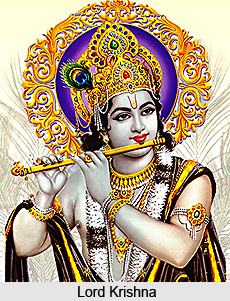 According to Lokayata tradition "Truth" was that which could be perceived by human senses of sight, hearing, smell, taste or touch. This tethered the exponents of Lokayata to a realistic and convincing approach. According to the philosophy of Lokayata, the universe was made up of active physical forces. These forces activated and stimulated each other. The Lokayata School differed from other philosophies in this aspect.
According to Lokayata tradition "Truth" was that which could be perceived by human senses of sight, hearing, smell, taste or touch. This tethered the exponents of Lokayata to a realistic and convincing approach. According to the philosophy of Lokayata, the universe was made up of active physical forces. These forces activated and stimulated each other. The Lokayata School differed from other philosophies in this aspect.
The idea that the active powers of the physical universe were alive and moved about consciously to achieve a purpose was the foundation of most philosophies. Lokayata did not believe in concepts like life after death or rebirth. However it is believed that they focused only on the material aspects thereby ignoring the spiritual ones.
It was the Lokayata outlook that was reflected in the advances made by Astronomers like Aryabhatta and Varahamihira. This principle considered man and his psyche a result of the material conditions that are around him. In this respect this school came close to modern interpretations which look upon man to be ultimately a result of physical evolution of the universe, and religion together with all aspects of the human psyche a result of Man`s intellectual and emotional evolution.
The Lokayata philosophy seems closest to the modern rationalism and was popular at some stage in Indian History. Its main exponent was a philosopher named Charvaka who is considered to be the contemporary of Lord Krishna. The term is derived from the root word loka and reflects the belief that only this world exists.
The three main schools of Lokayata philosophy: epistemology, ethics and metaphysics. The first school - pratyakshavada believes that perception is the only source of legal knowledge. The second - sukhavada advocates that the pleasure of the senses is the ultimate aim of life. The third school - jadavada is of the perception that the world is only material in nature. This philosophy existed since pre-Buddhist times and is mentioned in different contexts in Sanskrit literature. However it has no authentic text of its own.
It is a system of Indian philosophy. It assumes various forms of philosophical cynicism and religious apathy. This is considered as an unorthodox system. This philosophy is evident of a materialistic movement within the religion of Hinduism.



















